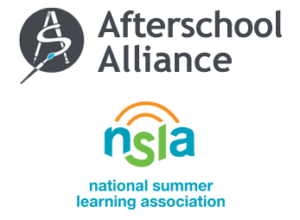September 24, 2020
Contact: Lisa Lederer, 202-371-1999
Laura Johnson, 410-300-6468

New Surveys of Parents and Out-of-School-Time Providers Find Growing Disparities in Access to Afterschool, Summer Programs, as COVID-19 Reshapes Education Landscape
Washington, DC – Following a season during which summer learning programs affected by the pandemic struggled to meet demand for their services, a large majority of afterschool programs that are open this fall report facing significant barriers as they strain to meet the needs of the students and families they have long supported. Among the challenges: Students who stand to benefit the most from these programs are now less likely than others to be able to access them. Those are key results from national surveys of parents and of afterschool providers, conducted by Edge Research and released today by the Afterschool Alliance and the National Summer Learning Association.
The surveys find that both programs and parents are challenged by virtual learning and evolving school schedules; programs are limited by budgets that are inadequate to address new safety protocols and students’ emerging needs; and students from low-income families are now much less likely than others to have access to out-of-school-time programs. Programs serving mostly children from higher-income families are almost twice as likely as those serving mostly children from low-income families to report being physically open, and among those that are physically open, those serving mostly children from higher-income families are more likely to be open to all children, including children of non-essential workers, than programs serving mostly children from low-income families.
“There are flashing red lights in these surveys with regard to the sustainability of the programs that families rely on, and the ability of these programs to serve the students who need them the most,” said Jodi Grant, executive director of the Afterschool Alliance. “That’s why the out-of-school-time community continues to urge the U.S. Department of Education to expedite its waiver process to provide flexibility to local programs funded by the 21st Century Community Learning Centers (21st CCLC) initiative, so they can support students during all the hours schools are now closed – something that should have happened months ago. And it’s why we’re calling on the Senate to join the House of Representatives in passing the 21st CCLC Coronavirus Relief Act, and asking both chambers to provide a onetime $6.2 billion boost in 21st CCLC funding to ensure out-of-school-time programs can do more to help during this difficult time. Students and families need and deserve this support.”
“When the history books are written for this pandemic, our nation will see the resiliency and resolve of out-of-school-time leaders who have risen to the occasion to serve our most vulnerable young people and families. The survey findings reaffirm that summer and afterschool programs are essential to America’s recovery and that our investment in their very existence will ensure that these critical anchors in the community continue to help all learners grow stronger, heal, and thrive beyond this crisis,” said Aaron P. Dworkin, CEO, National Summer Learning Association.